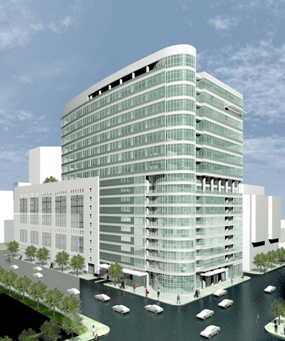Reflection
ABET Outcome Survey, Course and CPEP Reflection - Here I have placed the ABET survey as a separate document for easy printing if necessary
Reflection on Thesis Courses AE 481W and AE 482
Thesis cannot be summed up on a webpage, nor probably could any better job be done in a small book, but for what it is worth, I will reflect on the experience in its entirety. Thesis did wonderful things for my confidence in the building industry. I tried to focus my attention not on exemplifying my lighting or electrical skills, but instead on my overall understanding and comprehension of the relationships of the systems that I tried to integrate in my new designs. Thesis also allowed me to appropriately analyze every component of my electrical system from service to end-use. This experience will inevitably help me as I set forth in an electrical design position in the future. On the other side of thesis was the entertainment value, and the personal relationships that I was able to develop in trying to complete my final design project. Through many hours, days, and weeks spent in the lab, I gained a great appreciation for the company that joined me and the chance to talk to and have fun with classmates I rarely see anymore. A great many things came out of thesis.
From an educational and institutional standpoint, thesis is an invaluable tool the AE department has successfully utilized for many years. As a (coming) graduate of the program, I can only say that I support it entirely. From the basic dissection of a building as developed in AE 481W and the thorough reporting on the building to the development of "theoretical" systems through to completion in AE 482, a great many learning experiences and information is obtained for use in the future. AE 481W taught me personal lessons, like biting off more than one can chew, but informative lessons such as the reasoning behind a seemingly over-complex electrical distribution system. AE 482 taught me personal lessons as well, such as starting before it is too late. However, from some of these complexities came great discoveries that I can either use, or further research for their feasibility in the future. Anything that couldn't make it into the thesis, but piqued my interest nonetheless is one of the many great opportunities Thesis has afforded me.
I will say, with the pros there are the cons to thesis - though not many in number. Thesis is a large course, a 4-credit monster, and you can only begin to appreciate that magnitude when trying to complete its requirements (in my case) to a high-degree of achievement. This can be attributed to many things, the least of which is my desire to over-achieve (as some may put it) but also my deep interest in the topics that I choose to research. I wouldn't choose them if I wasn't interested, and I want to understand every aspect. This can cause great headaches when one realizes how much work they are putting in.
This is also seen explicitly in the presentation of work from previous semesters. For the reader, assuming you are a student, I will caution you - what is presented in AE 481 and AE 482 is not the typical work of a student, but examples of some of the largest amounts of work completed by individuals compounded over the years. While this will not change drastically and become "easier" it should be noted. This is one of the thesis' major flaws - the overwork of some individuals and the resulting lack of either completion, or adequate conclusion. It is a sad ending, but happens to any number of people every year.
Overall, however, thesis is a good thing. It has its finer points and its dark spots, and all of these are relative to the student. Once you conquer this seemingly insurmountable task, the relief and the confidence you gain cannot be measured. Only once you are done can you appreciate the work that is completed, and only then will you realize how four years of greatly varied learning can come together cohesively.
CPEP and Discussion Board Reflection
This reflection will be much shorter based on two distinct facts: 1) I am not for or against the use of webpages to disseminate information or as a focal point from which student's collection of work and achievements can be measured; 2) I rarely, if at all, used the discussion boards.
CPEP is good and bad. It does provide students a place to collect all of their work and an easily accessible point from which advisors and professionals can evaluate a student's performance and/or potential. It is, however, a real pain for the students. If the thesis project itself was not difficult enough, lack of knowledge on how to design webpages only further compounds their problems when, in the end, the website means very little. I myself have little knowledge of webpages and only through the graces of Eric Yanovich was able to present this semi-coherent webspace. If it wasn't for him, you wouldn't be even remotely pleased with how my site was set up, designed, or developed. CPEP, like anything has its good points and bad points. But because of my disinterest with developing a webpage dedicated to my "work" (somethign that I believe inadequately representing my "work") there is little for me to say for or against it.
As was said previously, I did not use the discussion boards, though given more time, I'm sure I would have liked to get a question or two in and a response back. However, I find it distinctly against how I complete my work - completely self-sufficient. If I do not know an answer, I calculate or find the answer, and as a last resort ask for the answer. It is for this reason (and the fact that I found many of my answers) that I did not use the discussion board.
